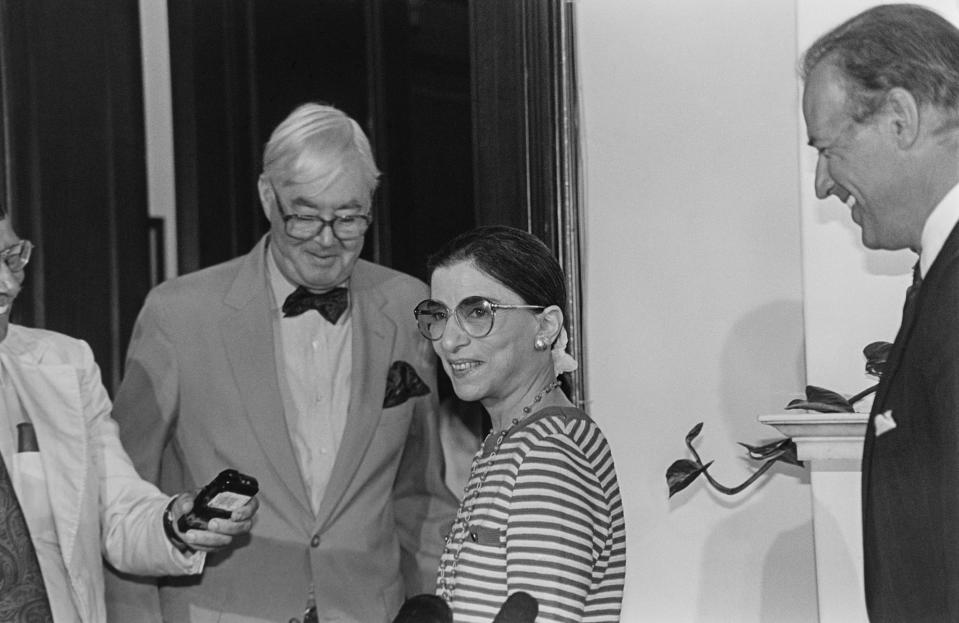RBG accomplished her 'major legacy' before joining the Supreme Court, author says
Ruth Bader Ginsburg, who died Friday, served on the Supreme Court for nearly three decades but accomplished her most significant achievement before she attained the top judicial post, says Linda Hirshman, lawyer and author of “Sisters in Law: How Sandra Day O’Connor and Ruth Bader Ginsburg Went to the Supreme Court and Changed the World.”
Hirshman told Yahoo Finance on Tuesday that Ginsburg’s “major legacy” stems from a dramatic shift in gender rights law that she brought about as a lawyer at the American Civil Liberties Union, or ACLU, in the 1970s and early 1980s.
After becoming the founding director of the ACLU’s Women’s Rights Project, in 1972, Ginsburg argued a series of cases that sought gender equity under the law in part through the application of the 14th Amendment’s guarantee of equal protection applied not only to racial discrimination but sex discrimination. After just two years, the project had participated in more than 300 sex discrimination cases, the ACLU says.

In the mid 1970s, Ginsburg argued six cases on sex discrimination in front of the Supreme Court and won five of them. In a landmark 1976 case, Craig v. Boren, Ginsburg filed an amicus brief challenging an Oklahoma law that permitted women to buy beer at age 18 but forced men to wait until they turned 21. The law relied on gender stereotypes, Ginsburg argued.
The court concurred, setting a precedent that laws based on sex should withstand a standard of judicial review known as “intermediate scrutiny” that requires proof that a law in question relates to a governmental objective.
“I think her legacy stems from her years at the ACLU,” Hirshman says. “She basically flipped the 14th Amendment, and got the Supreme Court to say that the 14th Amendment applied to sex discrimination.”
“Equality for women under the Constitution,” Hirshman adds. “Her major legacy.”

Hirshman joined Yahoo Finance as part of its “2020 Election Special,” a collaboration with Yahoo News and HuffPost that examines what will shape the election in the run-up to November.
Ginsburg left the ACLU in 1980, when President Jimmy Carter appointed her to the United States Court of Appeals for the District of Columbia Circuit. Thirteen years later, she was confirmed as a Supreme Court Justice.
“Her legacy for the future is not just the constitutional revolution she engineered, but the way that she instantiated and represented the revival of the feminist movement,” Hirshman says.
Read more:
Amazon slammed in report for adding ‘largely low-quality' jobs amid coronavirus
David Chang: Restaurant failures could have ‘severe repercussions' for other businesses
Bill Gates: We should be able to ‘manufacture a lot of vaccines’ next year
Michael Dell: ‘Not enough’ progress on diversity in the tech industry
Read the latest financial and business news from Yahoo Finance
